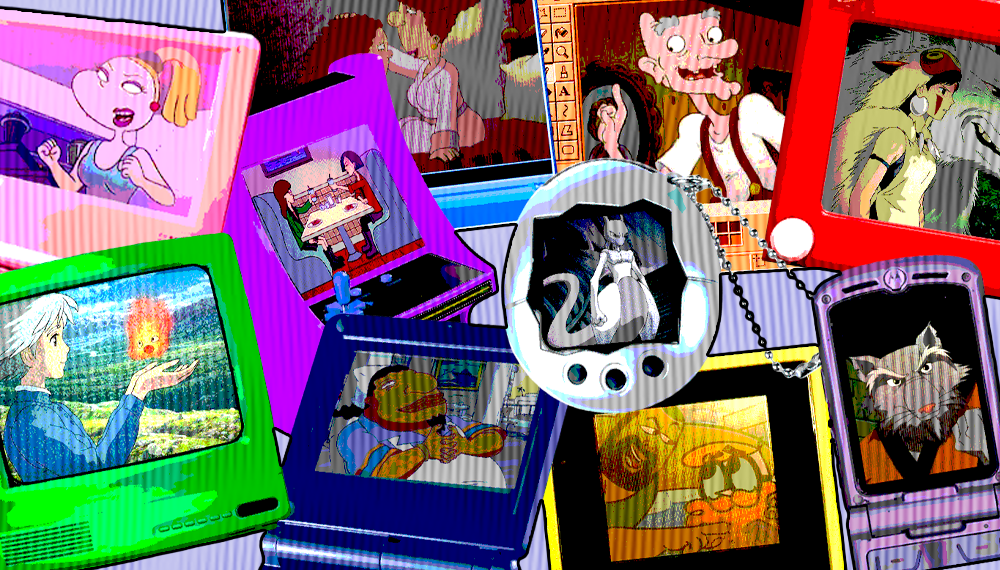
Who says cartoons are a mindless distraction? For years, cartoons have been keeping kids entertained while simultaneously teaching them important and profound lessons about life, love, and self-acceptance. Even in adulthood, the cartoons from our childhood are still giving us tips on how to handle the harder parts of living.
In these troubling times we’re in right now, maybe we can take some strength from the characters that helped shape us into who we are today.
As Told by Ginger
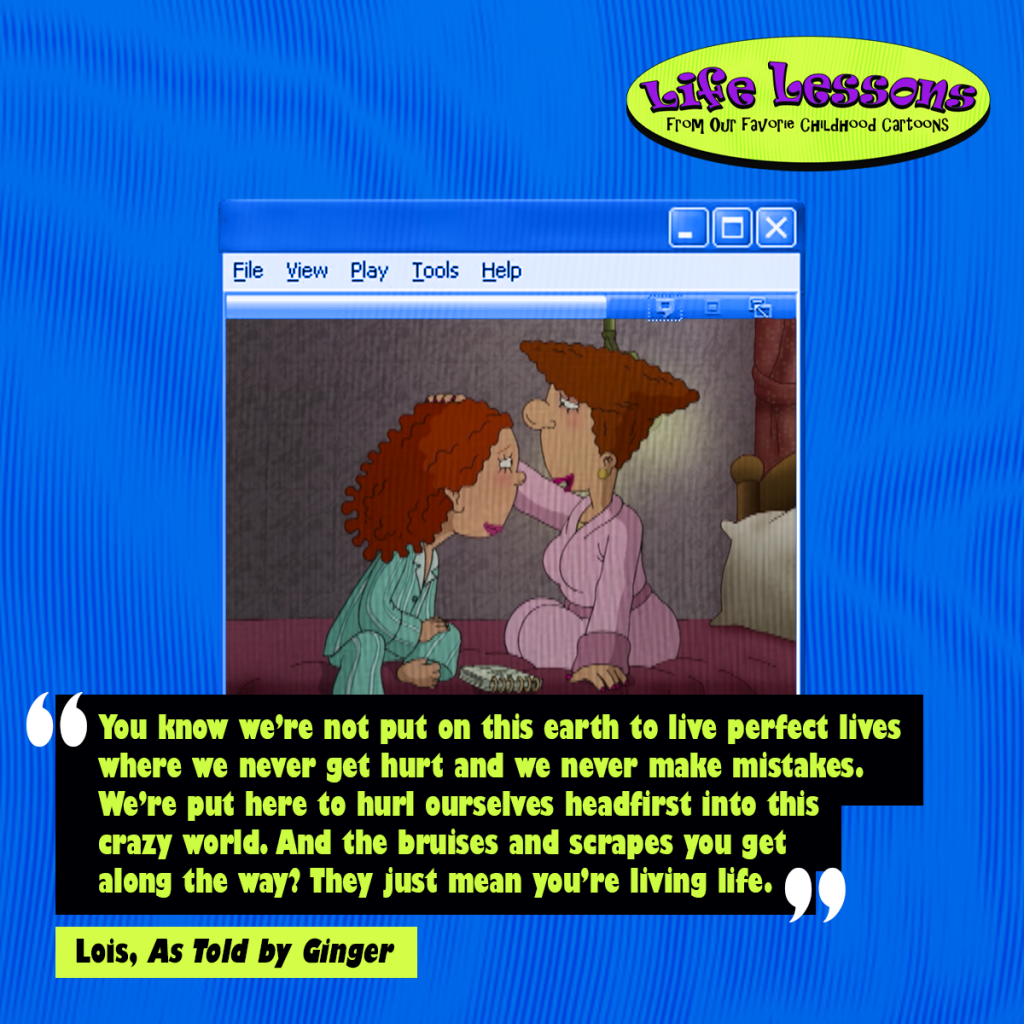
As Told by Ginger (2000-2005) was a show all about navigating life as a preteen that a lot of us related to when we were about that age. But even so, the show still has a lot to teach us about living the rest of our lives as adults. When Ginger’s mom, Lois, is writing her vows for her wedding in the series finale “The Wedding Frame,” she lets Ginger–and all of us–know that all the challenges we face in life are just a natural part of it.
Rocket Power
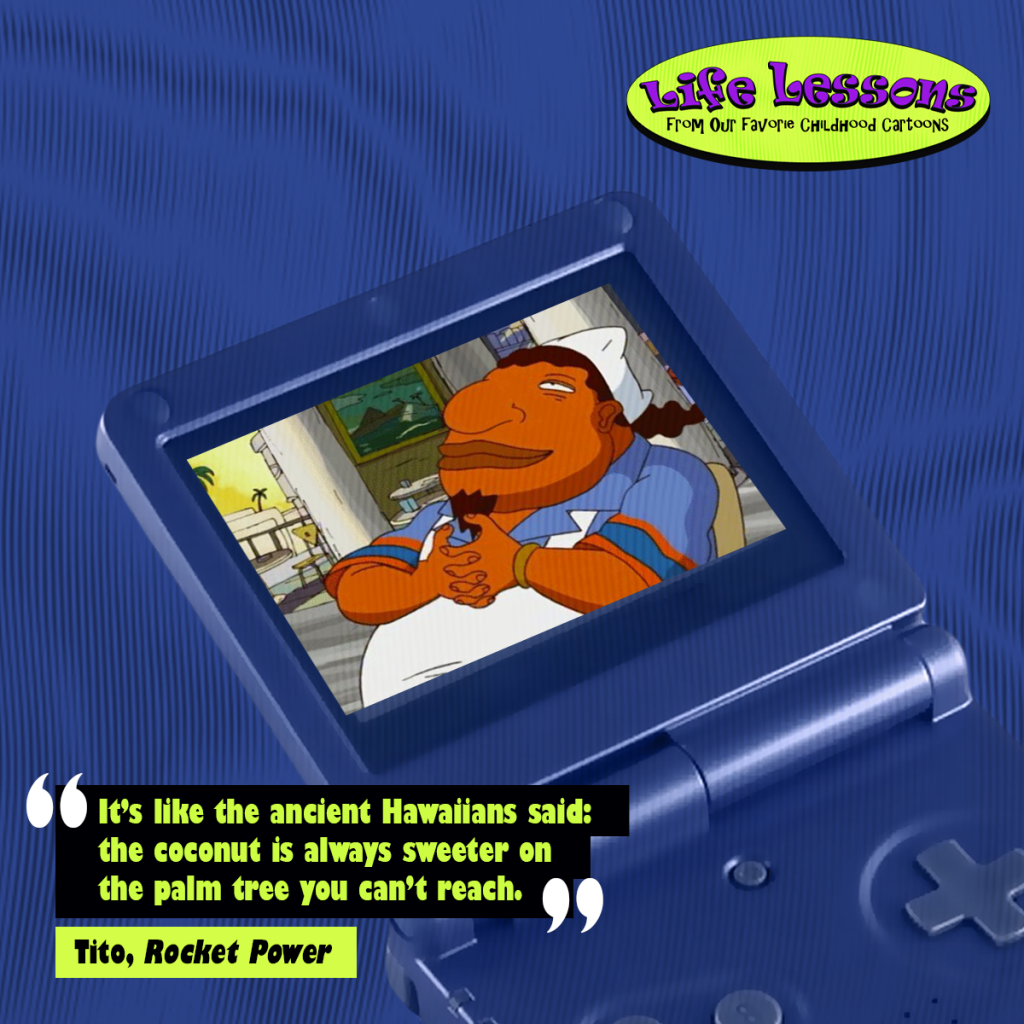
For those of us that grew up watching Rocket Power (1999-2004) on Nickelodeon, we’ll remember Tito for sharing all the knowledge he learned from the ancient Hawaiians–even if they didn’t make much sense most of the time. But every once in awhile, one of his little nuggets of wisdom would make a lot of sense, including this tropical rendition of the better-known quote, “the grass is always greener on the other side.”
Princess Mononoke
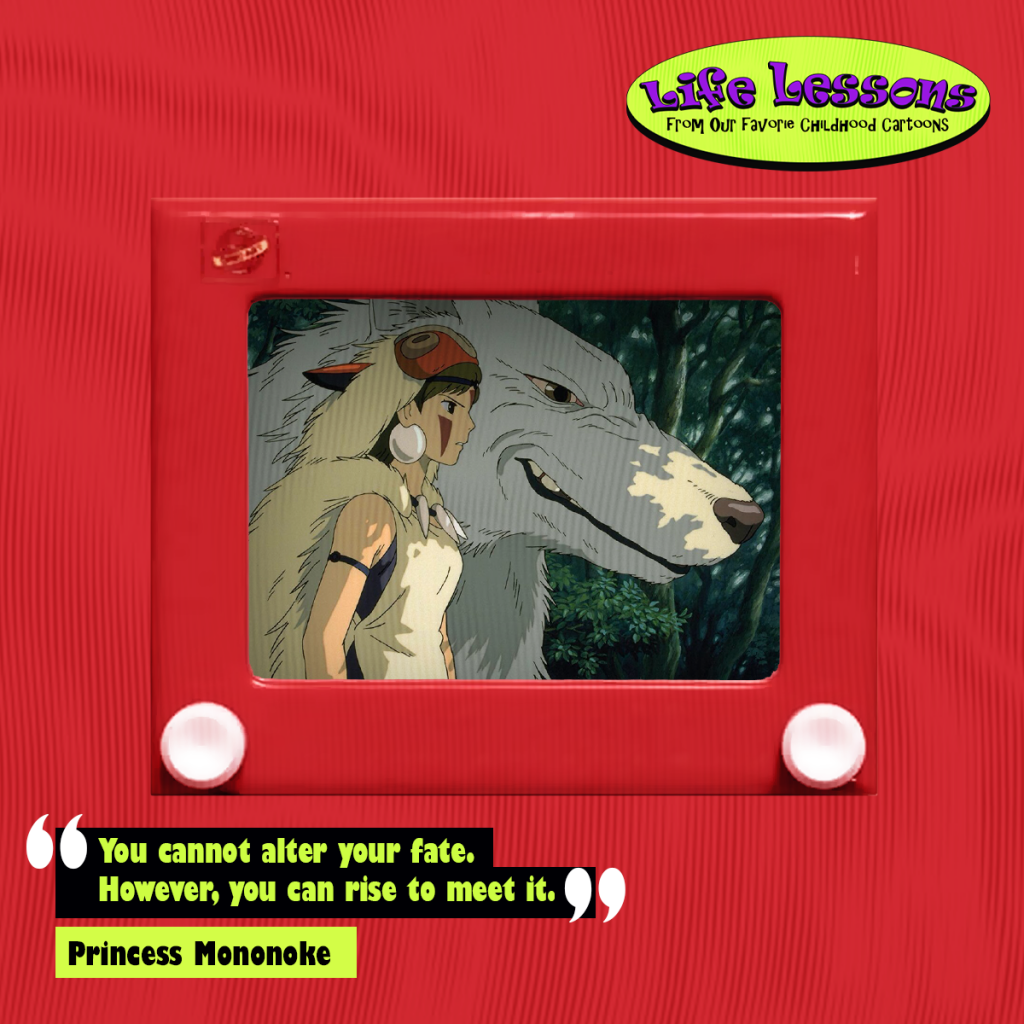
At the start of 1997’s Princess Mononoke, main character prince Ashitaka finds himself cursed after a battle with a boar god that could kill him. Before he sets out on a perilous journey to find the cure, his village’s wise woman tells him that although his path may be set and impossible to change, that doesn’t mean he has to stay defeated by it.
And this is a reminder we all need right now.
Pokémon
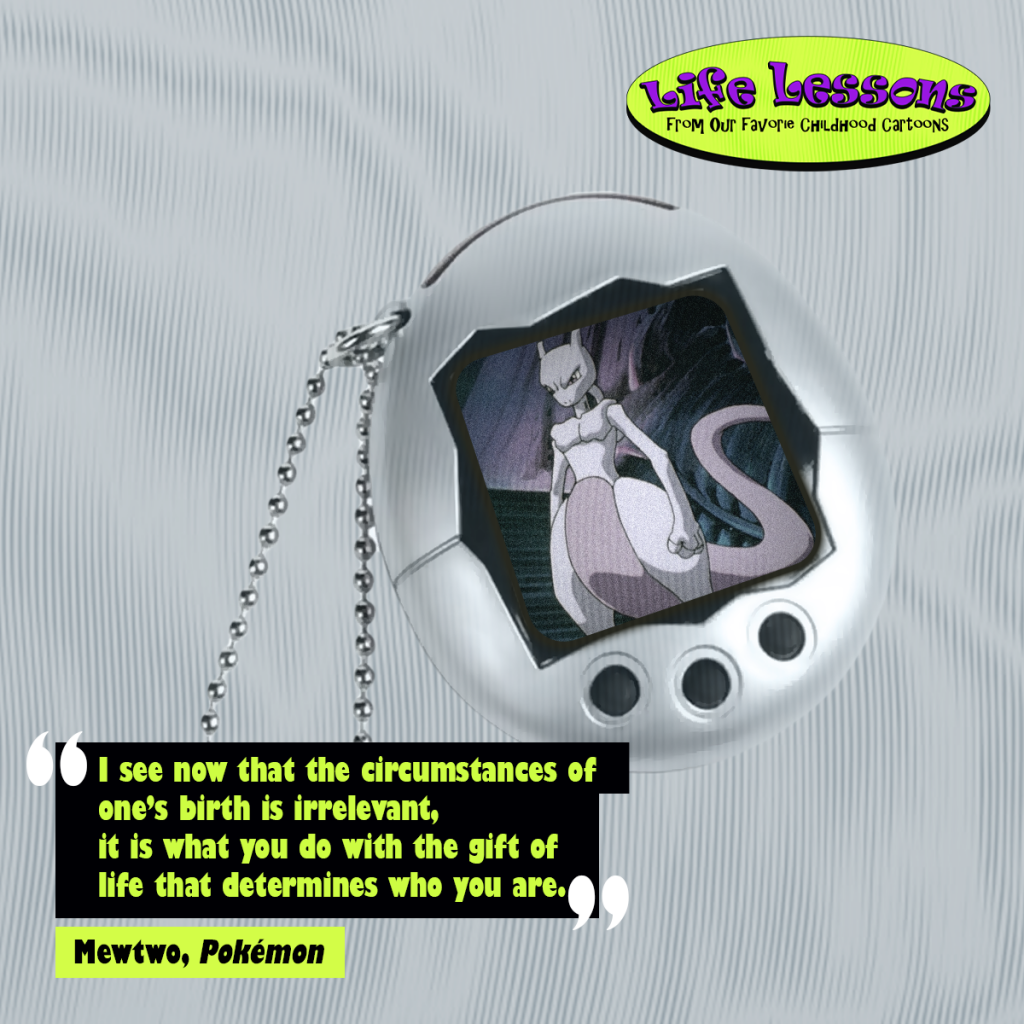
If you had no idea where this quote came from, it would be easy to mistake it for something a philosopher said hundreds of years ago. But no–it comes from the mind of one of the most legendary Pokémon (1998-2003) in existence, whose character also taught us the importance of being self-reflective, how to learn from our mistakes, and grow to be better people.
Rugrats
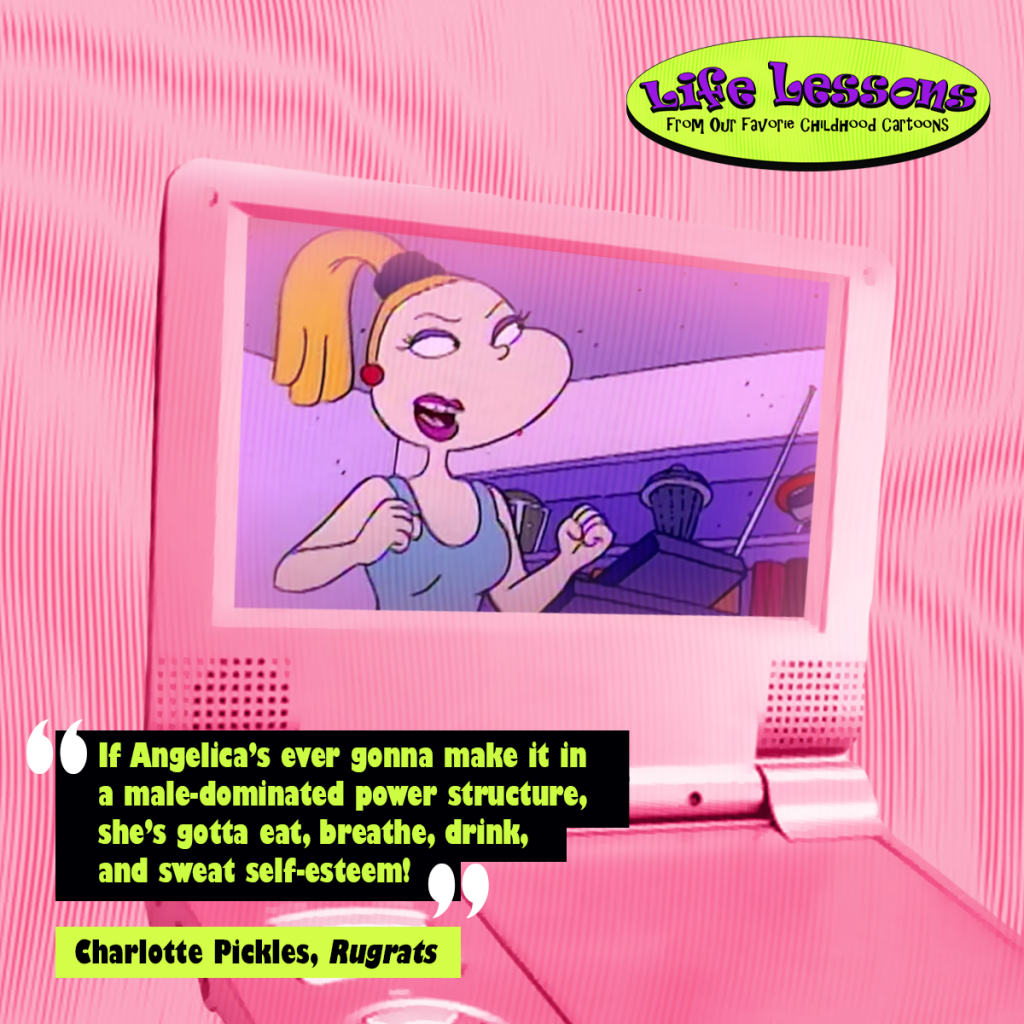
Behind the premise of talking babies and their crazy antics, Rugrats (1991-2004) was full of realistic and relatable characters going through all the problems we do in the real world. One such character was Angelica’s mom, Charlotte. While most wives were usually portrayed as “softer” characters next to their husbands, Rugrats reversed the roles, showing us an outspoken, independent woman who wanted her daughter to be as strong-willed as she was.
Howl’s Moving Castle
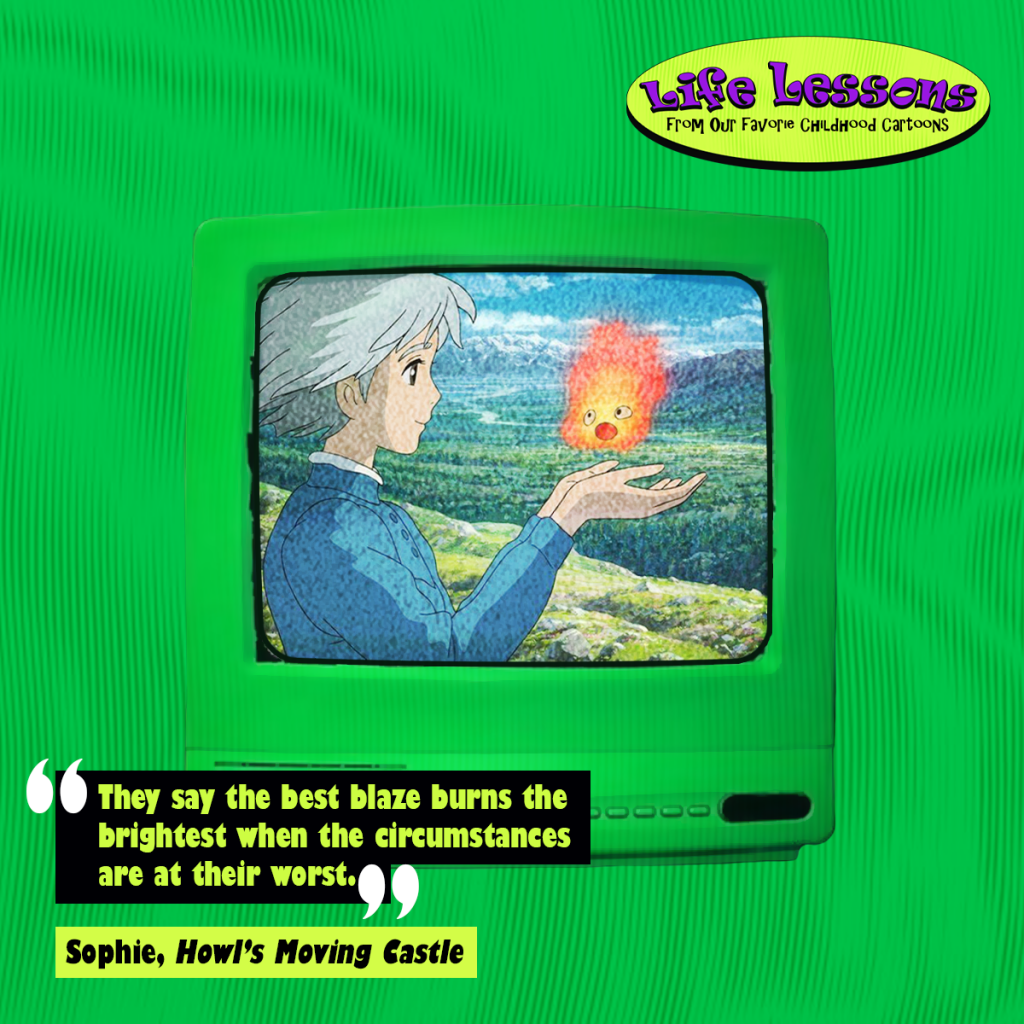
In another iconic Studio Ghibli film from 2004, Howl’s Moving Castle taught us a lot about what it means to love others and ourselves. Through Sophie’s and Howl’s journeys in the film, we learn more about how to accept ourselves, be compassionate, and love others despite their flaws.
Dexter’s Laboratory
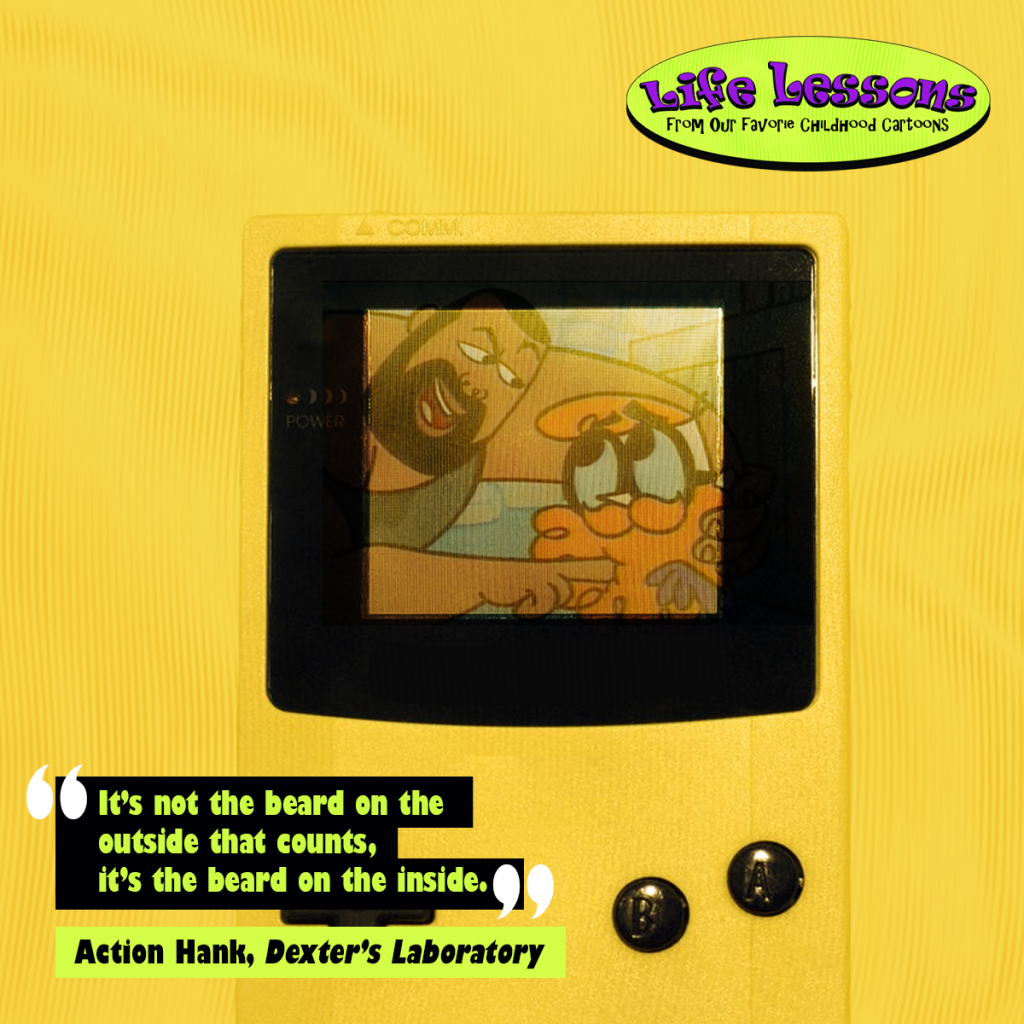
In the first episode of the second series of Dexter’s Laboratory (1996-2003), our titular character watches a film starring one of his heroes, the buff and bearded Action Hank. Thinking that you have to have a beard in order to be tough and rugged, Dexter creates a machine that gives him just that. While the beard does make him appear tough at first and encourages Dexter, Action Hank later imparts that being strong doesn’t come from the outside-in, but the other way around.
Teenage Mutant Ninja Turtles
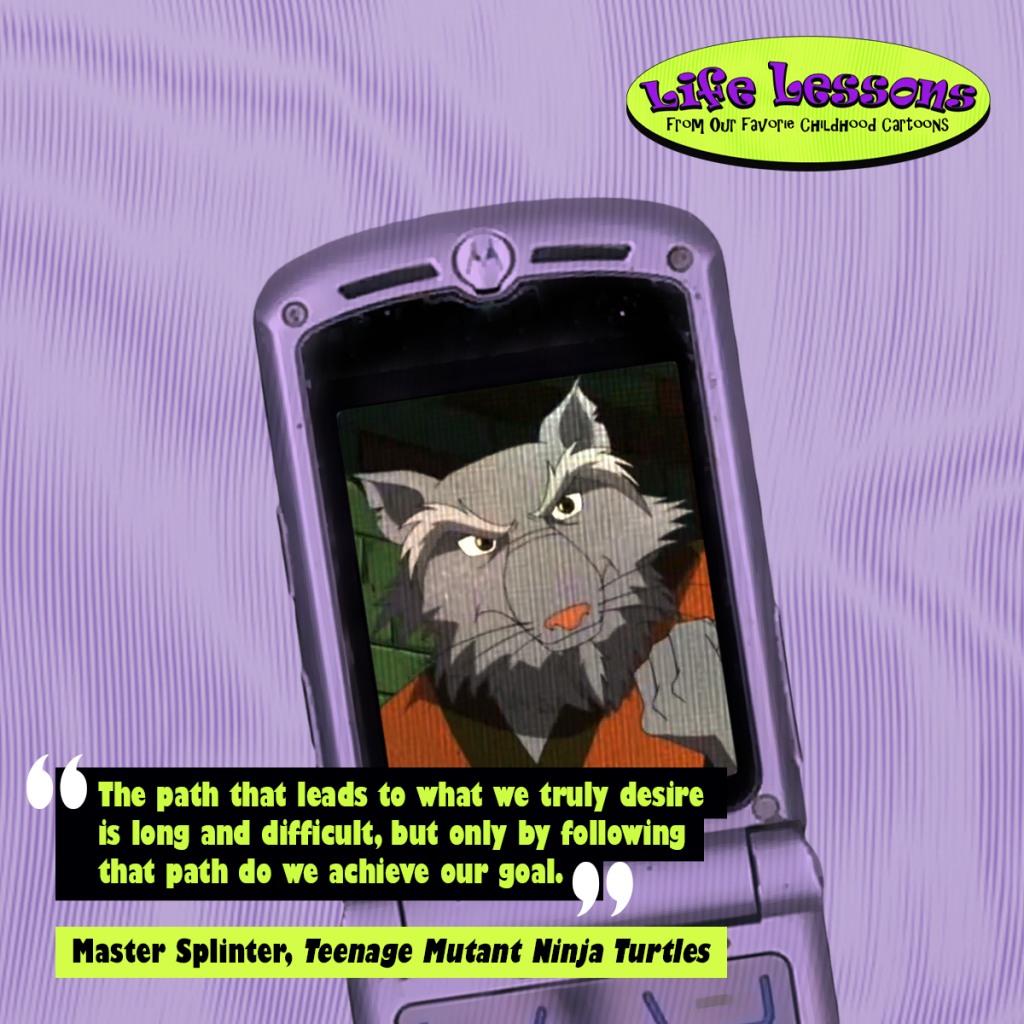
Without the tutelage of Master Splinter, the Teenage Mutant Ninja Turtles we grew up to love wouldn’t be the same. A martial arts teacher, zen philosopher, and father figure rolled into one, it’s unsurprising that there are more than a handful of quotes and lessons we can take away from the character and apply to our day-to-day lives.
Hey Arnold!
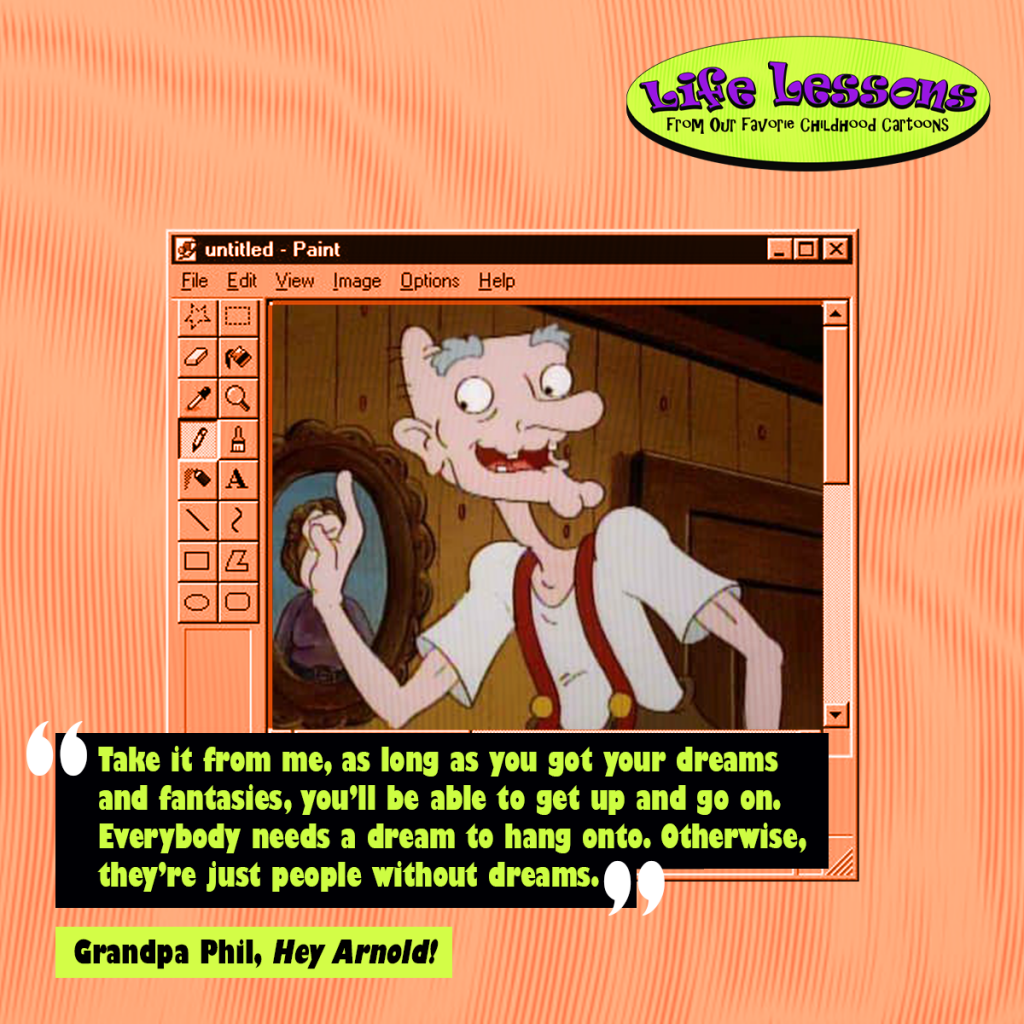
Hey Arnold! (1996-2004) was a children’s show full of really serious and difficult topics to discuss, even for adults if you look back at it, and so the fact that they could present all these issues in a way that kids could understand them is a pretty big accomplishment. While all the problems the characters faced were pretty diverse, this quote by Grandpa Phil encapsulates what the series wanted us to take away from all of them.
Daria
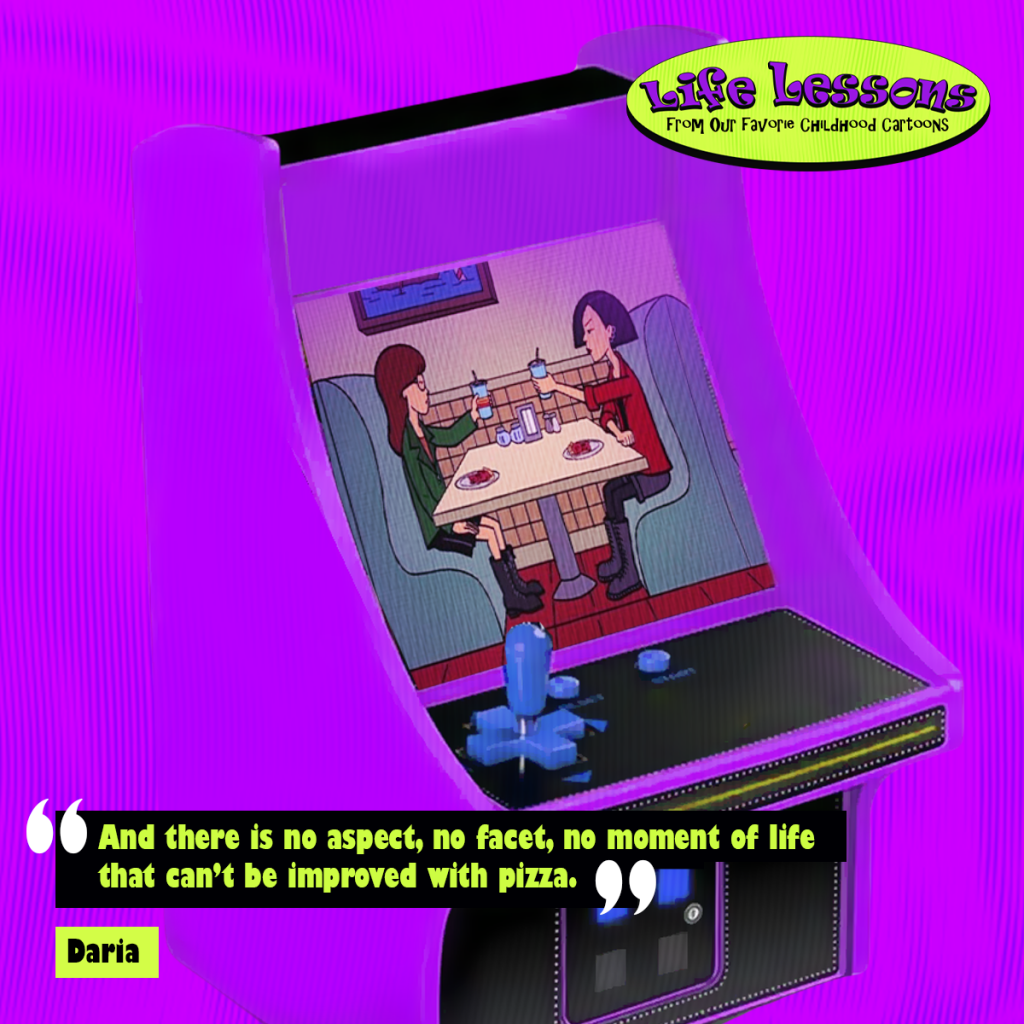
When we were all going through our own phases of teen angst, there was no show that mirrored our cynical selves better than Daria (1997-2002). Pessimistic and sarcastic, Daria basically said everything we wanted to say, and it’s safe to assume that a lot of us felt heard by the show. And when it came to the simple pleasures in life, Daria knew exactly what anyone at any age could find comfort in.
Follow CLAVEL on Facebook and Instagram for news, culture, and more.


